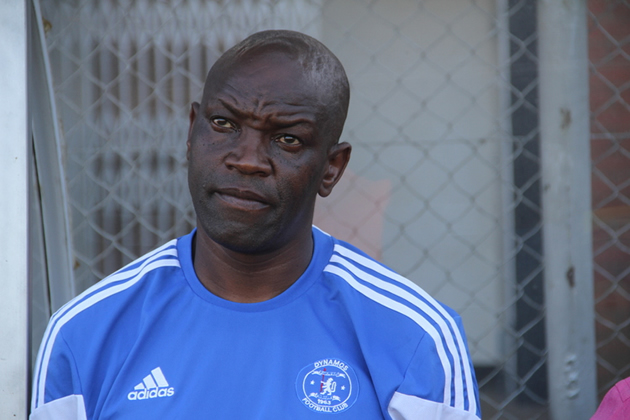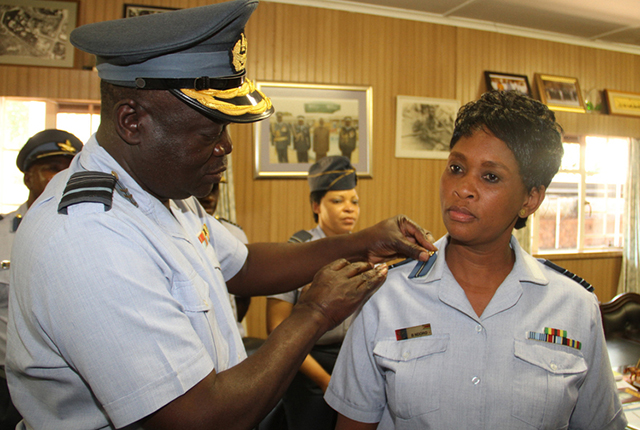State must prioritise people with disabilities
Peter Banga Correspondent
Zimbabweans are grappling with a myriad of challenges across all frontiers as life keeps taking a turn for the worse.Those in charge of national finances are doing their best to recommend measures to cushion the economy, but for the ordinary man life has remained difficult.The El-Nino induced drought has resulted in acute food shortages across the country, with even livestock bearing the brunt of dwindling pastures and water points.Animal enthusiasts are busy trying to drill boreholes in national parks to make sure that wildlife is saved.All such efforts are quite commendable in making life bearable but it is saddening to note that sometimes the amount of attention given to wildlife is less than that given to people.
One group of people which has been overlooked especially when situations are difficult and resources scarce is that of people with disabilities.
Like anyone else under such difficult times, people with disabilities look up to the State for salvation.
As Hubert Humphrey notes: “The moral test of government is how it treats those who are in the dawn of life, that is, children, the elderly, the sick, the needy and the disabled.”Last week I visited Parirenyatwa Group of Hospitals’ orthopaedic centre in Harare to have my leg calliper fixed after a screw had come off. The orthopaedic centre is where people with walking difficulties or amputees are assisted with walking aids.
I was shocked to see that there were no other clients, yet it was a normal working day and the place should have been bustling with activity.
“You are lucky we can attend to you now because your issue is minor,”“The plastics moulding machine broke down three weeks ago. We turn away clients because we are not manufacturing callipers and artificial limbs for amputees,” said an insider at the centre.
I immediately understood why Noah Lambo, a sculptor with a disability from Chitungwiza I referred to the centre recently did not find any joy at this place.Unfortunately, this is the sad state of affairs at the centre, which has been beset with countless challenges for the past couple of years.
The place’s clientele spans Harare, Mashonaland, Masvingo, Manicaland and parts of Midlands provinces. On the other hand the orthopaedic centre at Mpilo hospital in Bulawayo caters for Matabeleland North and South and parts of Midlands.One would have expected that since the orthopaedic centre is located in the capital, it should have uninterrupted services.
Unfortunately, it seems things have gone wrong at this once vibrant facility.
“The Harare entity was previously independent but it is now part and parcel of the Parirenyatwa Group of Hospitals.“The centre competes for resources with the other hospital units,” said a source at the hospital. “Right now there has been no water in the toilets for the past few weeks, yet the borehole is just about ten metres away,” he added.
The most nagging question any person could ask is: Are the hospital authorities bothered by this pathetic state of affairs — let alone ministry of health officials?It’s about time relevant authorities roll up their sleeves and correct the situation.Two years ago, the centre went for over a year without leather for making orthopaedic shoes and callipers. The official reason given then was that Parirenyatwa Group of Hospitals did not have sufficient funds. But, how can Government fail to procure leather to ensure mobility for the disabled who cannot do without assistive devices?
It seems the rehabilitation unit in the ministry of health is not being proactive in solving these challenges. By so doing the state, in particular the Ministry of Health is violating the rights of people with disabilities as enshrined in Section 83 of the Constitution of Zimbabwe.
The section states that: “The State must take appropriate measures, within the limits of the resources available to it, to ensure that persons with disabilities realise their full mental and physical potential . . .including measures to enable them to become self-reliant.”
How do we expect them to be self-reliant if they are rendered immobile?
These rights are also spelt out in the United Nations Convention on the Rights of Persons with disabilities to which Zimbabwe is a signatory. The purpose of the convention is to promote the full and equal enjoyment of all human rights and fundamental freedoms by all persons with disabilities. It also promotes respect for their inherent dignity.
Surely, their dignity is compromised if they cannot move about freely. A year ago, the centre could not provide services to clients due to a leaking roof that went unattended throughout the rainy season. Water seeped through into the workshops and operations were suspended because technicians were exposed to danger.
The excuse peddled for failure to address these challenges is that there are no funds to fix the problems. The explanation was unconvincing as during that same period, an impressive block of flats for nurses was being constructed adjacent to the orthopaedic centre.
We are not saying do not build nurses homes but why should issues to do with the disabled always come as an afterthought?
People with disabilities are a big constituency that votes. They have two representatives in Parliament — Senators Anna Shiri and Nyamayabo Mashavakure. Furthermore, every senator and MP has such electorates in their constituencies and legislators should be worried as to how such individuals are coping.
Every Zimbabwean worth their salt should rally behind those with disabilities in situations like these without fear or favour
Peter Banga is Head of Harare Polytechnic School of Journalism and Media Studies. He can be contacted on: [email protected]










Comments